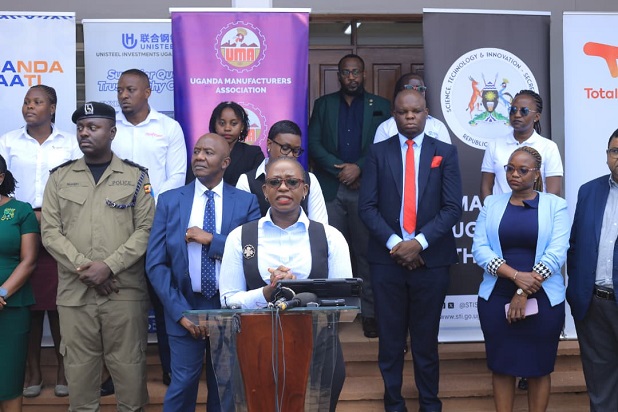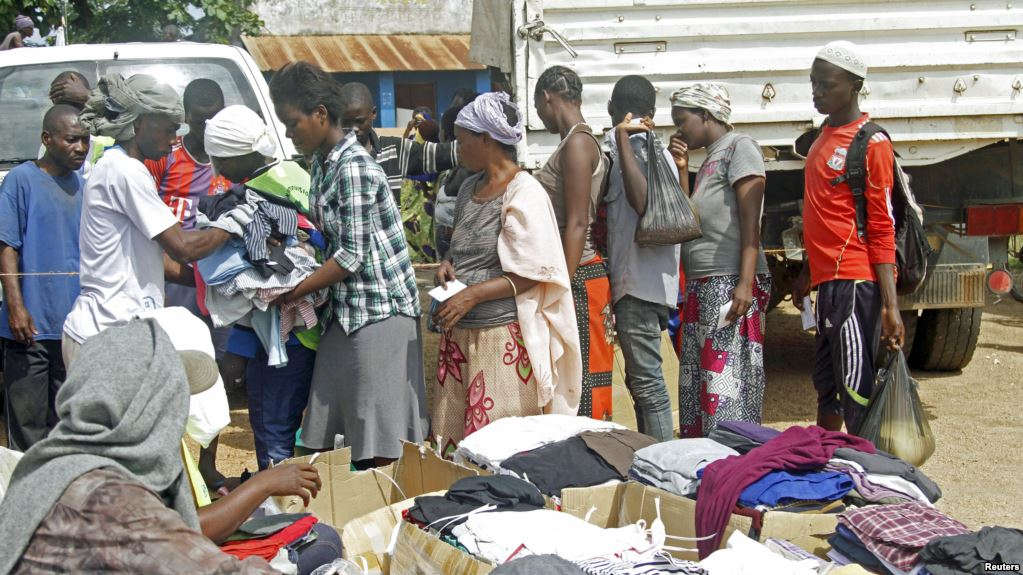The government is pushing for a migration to the planting of ‘cash-crop trees’ especially for low-income earners to cater for both quick and more regular incomes as well as environmental protection.
State Minister for Environment, Beatrice Anywar says that the country’s forest cover restoration program has for long focused on trees for timber production, which has seen most people plant eucalyptus and pine and other quick-maturing timber trees.
She says in some cases, this has not helped one of the country’s challenges, food insecurity because more time and land are used for timber, yet the trees take longer to earn the growers’ money for to cater to other needs.
Speaking at the second Annual Sustainable Finance Business Immersion, Anywar said the current themes are tired and the people have to get something that motivates them more.
She also urged those in the climate change mitigation initiative to make the message easier and more understandable to the common person, with suggested solutions that are practical and easily achievable.
Sustainable finance business emersion, an initiative of Standard Chartered Bank is a platform for the private sector, government agencies, financial institutions, and climate experts to share new developments regarding the impact of climate-related activities on the financial industry.
The industry has been in the spotlight for financing activities that either lead to the destruction of the environment or do not promote the environment and the social well-being of the people.
In recent years, financial institutions have increasingly become cautious of what kind of projects they finance, while others are helping investors to institute climate mitigation measures in their operations.
Uganda’s oil and gas sector and South Africa’s coal production are some of the projects around the world that have been affected by these changes under the bank’s Environment and Social Governance (ESG).
Standard Chartered Chief Executive Officer, Sanjay Rughani, said that on their side, they are reducing financing for investments are have high rates of carbon emissions, like coal, fossil fuel, steel, and others, as well as helping companies with measures to reduce their emissions.
Rhugani said that everyone, including lenders, bank clients, and the general public should get used to the new terms and conditions being dictated by the anti-climate protection global movement.
According to him, banks even expect lending to the investments that have no ESG practices to be more expensive under the new normal, ‘to cater for what you have failed to do”.
Last September, Uganda updated NDC (the Nationally Determined Contribution), a commitment of what the country will do as part of the global war on climate change, with a target of 24.7 percent below the ‘business as usual by 2030.
The NDC is a global initiative under the UN Convention on Climate Change, and Uganda’s ambitious commitment is expected to cost 4.1 billion dollars.
The Ministry of Finance, Planning, and Economic Development created a climate finance unit to mobilize resources from both domestic and international sources for climate and green investments.
The head of the unit, Dennis Mugagga says they are charged with formulating strategies that will raise the needed funds.
However, Mugagga says that they are aware of the debt position the country is in and would not want to make it worse, which calls for what they called innovative debt management.
The government is therefore re-negotiating some of its debts with the lenders to find a way of settling the loans without necessarily paying back in cash, especially in projects related to health, and the environment, among others.
Mugagga gave an example of so far a successful deal Uganda has secured with the government of Spain whose loan of about 6.7 million dollars (about 25 billion shillings) has been converted into an investment in health facilities at two hospitals.
Access to climate financing is not coming with challenges, however.
Kakira Sugar Works, which is expanding its irrigation project to increase productivity at their plantations has its plan stalled due to red tape.
Project Director Farhan Nakhooda says the project has already secured the financing but cannot be implanted because, since last year, the National Environment Management Authority has not responded to their request for approval.
The delays, according to Nakhooda, are frustrating and make the project cost more expensive.
Expressing his apologies, Minister Anywar said there must be a problem at the lower offices where the application is being delayed, adding that this is a violation of the policy of the government regarding facilitation of investors.
–URN





